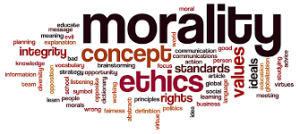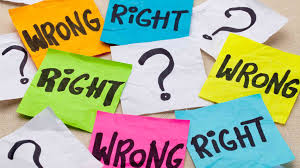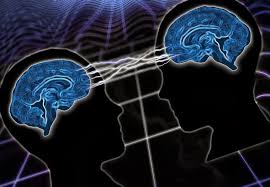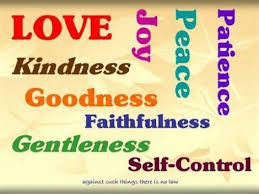
Ethics 101
Here’s a question that lies at the very core of both humanity, and religion. What is morality? This is a question that’s inseparable from the very life we live. Our every action and decision is based upon our concept of morality. Even for someone whose actions seem to you, or to me, to be based on a lack of morality, their very actions that we “question” are still based on that person’s own concept of morality. Their morality may indeed be very different from our morality, but everyone still acts upon what they believe is proper. Morals are the individual “rules” of conduct that we live by. And morality is that “set of rules” of conduct.
What about ethics? Do you know what “ethics” is? There’s a lot of different ideas about what the word “ethics” means. I think that most people think ethics is almost the same thing as morals. In other words most people think ethics is another set of “rules of conduct”, that maybe apply in slightly different situations than morals. And you’ll find a lot of crazy definitions out there too. For instance, here’s one person’s definition.. “Morals deal with what’s right and wrong, but ethics deals with good and evil”. That is simply not true!
I think of good and evil, as being the very essence of something, or the characteristic of something. Like God is very the essence of good, while satan is the essence of evil. But I guess I think of right and wrong as how something relates to good and evil. In other words, if some thought or action is in agreement with the essence of good, then that thought or action would be right. And of course if something is NOT in agreement with good, but is in agreement with evil, then that thing would be wrong. But that has nothing to do with the difference between morality and ethics.
Let me explain to you the relationship, between morality, and ethics..
First let’s take a look at the definition of morality, so we know exactly what it is that we’re talking about.
 Morality is.. “the set of principles concerning the distinction between right and wrong, or good and bad behavior”. “A particular system of values and principles of conduct, especially one held by a specific person or a society”.
Morality is.. “the set of principles concerning the distinction between right and wrong, or good and bad behavior”. “A particular system of values and principles of conduct, especially one held by a specific person or a society”.
There’s more definitions with slightly different wording, but they all express the same idea; that of a system of principles that govern our conduct, and even to some extent, our thoughts.
Now here’s what ethics is.. “Ethics is the study of morality”. That’s the very plain and straightforward definition of ethics; “The STUDY of morality”.
Let me give you a couple of analogies..
Listen to this definition of what “words” are. “A word, is a single element of speech or writing”. Do you know what “etymology” is?
“Etymology is the STUDY of words”.
Here’s another analogy.. What is language? “Language is a method of communication, either spoken or written, consisting of the use of words”. Do you know what “linguistics” is?
“Linguistics is the STUDY of language”.
And so, in exactly the same way; “Morality is a set of principles, or rules, concerning the distinction between right and wrong, and good and evil”.
And, “Ethics is the STUDY of morality”.
If there is an “ethics committee”, within some organization.. It’s job would be to study the morality of the things done, by members of that organization. People can twist the definitions around however they’d like, but this is the true meaning.
And so this study today is really on “ethics”. The study of morality.
 Here’s an important question. What is the origin of morality? Have moral principles simply originated in the minds of men and women, and then evolved into what we think of as morality?
Here’s an important question. What is the origin of morality? Have moral principles simply originated in the minds of men and women, and then evolved into what we think of as morality?
In other words, as people have lived together on this same earth, have they simply “learned”, that some methods of behavior are more conducive to life and to well-being, than other methods of behavior? Kind of like a “trial and error” approach.
So for instance; We might try demanding, everything that we personally want, and see how that works out. If someone else has something we want, let’s just take it for ourselves. If someone really disturbs us in some way, let’s just get rid of that person, maybe we’ll even kill ’em. Just like Cain killed Abel. But if that doesn’t work so good, and let’s say, maybe we suffer too many consequences from that kind of behavior, like Cain did, then we’ll modify that behavior a little bit. We’ll make a couple of adjustments, and behave in a way that doesn’t quite have such an adverse effect on us. So you get the idea of how a system of principles might evolve in that way. A system that could govern the behavior of a group of people, or a society, and maybe even the world. That would be a kind of a “socially based” evolution of morality.
Here’s another way that some people think morals have originated. A man who’s an atheist, told me that he believes morals have their origin, in biology, in the same physical biology that makes up our bodies. Being an atheist, he naturally believes in the evolution of man, from a lower life form. And so he also believes that “morals” and other mental traits, have evolved into existence, just like our bodies have evolved. And so that our sense of morality, would actually be the result of “biological evolution”. Just like our biological bodies have evolved from one form into another, he believes that even our minds, and our very concept of morality has evolved, biologically. In other words, the very concept of right and wrong, and the ability to reason about what is right and wrong, and to make judgments concerning right and wrong, have their origin, in the physical realm of cells and molecules, and chemicals; in physical biology.
 That belief attributes a sense of morality to many animal species, not just human animals. For instance, that belief says that the behavior of animals, in caring for one another, is evidence of a sense of morality. But I’m sure that the majority of people would simply see this as instinctive behavior. Even if an animal of one species, displays care for an individual of another species, even that is viewed by most people, as “animal instinct”. Nevertheless, some people view this natural tendency of animals to “care” for one another, as evidence of morality in non-human animals. I suppose then, that when animals of the same species, and even the same “family group”, kill and eat one another, that’s simply evidence of “bad morals”. Many animals will eat their young, and so those animals must have evolved with a very different set of morals than others. So some animals must have evolved with “good” morals, and others with “bad” morals.
That belief attributes a sense of morality to many animal species, not just human animals. For instance, that belief says that the behavior of animals, in caring for one another, is evidence of a sense of morality. But I’m sure that the majority of people would simply see this as instinctive behavior. Even if an animal of one species, displays care for an individual of another species, even that is viewed by most people, as “animal instinct”. Nevertheless, some people view this natural tendency of animals to “care” for one another, as evidence of morality in non-human animals. I suppose then, that when animals of the same species, and even the same “family group”, kill and eat one another, that’s simply evidence of “bad morals”. Many animals will eat their young, and so those animals must have evolved with a very different set of morals than others. So some animals must have evolved with “good” morals, and others with “bad” morals.
However, if humans HAD indeed evolved from other species, (which they didn’t) then our first suggestion of a “socially evolving” system of morality, based on human experience, wouldn’t be hard to understand. People would actually learn pretty quickly what behavior resulted in the best overall effects for life and happiness.
Here’s something that people sure learn in a hurry. They learn that if they can gain enough influence over others, and enough power, then they can have any kind of morality that suits them without suffering any bad effects at all. We see that all over the world with leaders of countries that have gained that kind of power and control. They can do anything they please without suffering any consequences at all. At least for a while they can.
But that’s what happens when you allow morality to just evolve. One person’s morality evolves one way, and another person’s evolves another way. You end up with one person who cares for other people, and then someone else who couldn’t care less for anyone except themselves. It’s impossible for there to be any kind of “standard” of morality. As a matter of fact, it’s even impossible for there to be right and wrong, or good and evil, because it would all simply depend on how you evolved. In the theory of the evolution of humans from lower life forms, it is absolutely impossible for there to be anything that is intrinsically right or wrong, in and of itself. Everything would simply be a matter of chance happening.
If someone were to suggest, that evolution had some kind of “design” that governed and controlled the outcome, then by necessity, that would demand a designer, or in other words, a god.
 But yet we have countless atheists and evolutionists, who say “I’m right”. To their credit, many atheists are also humanitarians. And so they argue that their morality (which has evolved) is what is best for the survival of the human species. And while this may or may not be true, it’s of absolutely no consequence, because the human species is only one of an estimated 8.7 million different species of life on this earth. If evolution were true, who cares if the human species were to die out and become extinct! Everything that has ever lived, will eventually die anyway; so what’s the difference?
But yet we have countless atheists and evolutionists, who say “I’m right”. To their credit, many atheists are also humanitarians. And so they argue that their morality (which has evolved) is what is best for the survival of the human species. And while this may or may not be true, it’s of absolutely no consequence, because the human species is only one of an estimated 8.7 million different species of life on this earth. If evolution were true, who cares if the human species were to die out and become extinct! Everything that has ever lived, will eventually die anyway; so what’s the difference?
If you’re an atheist or an evolutionist, any and all concepts of right or wrong, exist ONLY in your mind, and NO where else, because that’s simply how your mind has evolved. No design, just a chance happening.
So, where do you think morality originated from? Did it just evolve, as men and women learned what they COULD get away with, and what they COULDN’T get a way with? Or is there actually a moral standard that exists, that we are ALL supposed to live by? And if we choose to NOT live by that one moral standard, then are there consequences that we’ll suffer? And if there IS a moral standard, then where did it come from? Who set the standard? Who enforces the standard? And if there are consequences for not following the standard, what will the consequences be?
Well, you know that there IS a moral standard! And you know who SET the standard. And you know that there WILL be consequences for not following the standard. And you also know WHAT the consequences will be. And you know WHO will be the enforcer. Am I not correct in saying that you KNOW all these things?
You know that GOD has set the standard. You know that the standard IS the BIBLE. You know that the consequence for not following the standard is separation from God; eternal separation, no less. And you know that the enforcer is GOD Himself.
No Scripture Verses !
You’ve just listened to about 1800 words here, without a single scripture reference. So our lesson on ethics wouldn’t be complete without looking at the only true morality that exists. And it doesn’t just exist in our minds, it exists within the creator, who has also created everything else that exists; and that morality exists within His word.
So here’s our first scripture..

“Seeing that His divine power has granted to us everything pertaining to life and godliness (that’s our conduct and our attitude), through the true knowledge of Him (that’s through the word) who called us by His own glory and excellence.”
“Through which (through that knowledge) He has granted to us the precious and magnificent promises, that by them (the promises), you might become partakers of the divine nature (that’s where morality exists, in His divine nature), having escaped the corruption (the immorality) that is in the world by lust.” 2 Peter 1:3-4
It’s interesting to note, that the word “corruption” means.. “internal decay.. or rottenness, or decomposition, or destruction”. That gives a whole different understanding to the word “corruption” doesn’t it? We know, that “outwardly” we’ll ALL see corruption. Our bodies WILL decay and decompose. But our inward spirits, can also decay, and be destroyed. And if that happens, it will be because of the lust that is in the world! The lust that we haven’t “escaped”, through the word.
Now here’s some of that “divine nature”, in other words, some of that morality, that will enable us to escape “corruption”..
This is a continuation of what we just read in 2 Pet 1:3-4. Here’s v’s 5-7.. “Now for this reason (the reason being that we have escaped the corruption of this world, to be a partaker of His nature), giving all diligence, richly add to your faith, virtue (virtue is moral excellence), and to your virtue, add knowledge, and to knowledge, add self-control, and to self-control, add perseverance, and to perseverance, add godliness (godliness means a reverential attitude toward God), and to your godliness, add brotherly kindness, and to brotherly kindness, add love.”
 Here’s some more, “morality”, that the scriptures call, “the fruits of the Spirit”. So actually, these are the “fruits of morality”. “Love, joy, peace, patience, kindness, goodness, faithfulness, gentleness, self-control..” Galatians 5:22-23
Here’s some more, “morality”, that the scriptures call, “the fruits of the Spirit”. So actually, these are the “fruits of morality”. “Love, joy, peace, patience, kindness, goodness, faithfulness, gentleness, self-control..” Galatians 5:22-23
Need more “morality”? How about this.. “Blessed are the poor in spirit” (that means, the humble), “Blessed are those who mourn”, (when you mourn, you feel compassion, don’t you?), “Blessed are the gentle”, “Blessed are those who hunger and thirst for righteousness” (righteousness is the keeping of God’s commands), “Blessed are the merciful”, “Blessed are the pure in heart”, “Blessed are the peacemakers..” Mathew 5:3-9 That’s morality!
Here’s another moral quality.. “..He became the author of salvation to all who OBEY Him.” Hebrews 5:9
Obedience to God, is a moral quality!
I’d like to show you a small part of the writings of a man who advocates secularism, above religion. You’ll see some confusion right off the bat, in his very first statement..
“Establishing an agreed upon Ethical Code, to assist in guiding human behavior, might be advisable”. Do you see the confusion? He’s using the term “Ethical Code” to refer to a list of standards of conduct. Remember what the definition of ethics is? Ethics is the STUDY of morality. Ethics is NOT a list of behavioral standards, but rather it is the STUDY of those standards, which are called morals.
But let me continue with what he writes..
“Instead of Religious Moral Laws”, there would be 19 common sense “precepts” for happy living, that hopefully could be accepted by all of mankind, as principles for rational human behavior.” (Do you see how he’s using the term “ethics” to describe these precepts, and principles for behavior?)
Now, here are the 19 “common sense precepts”, that he lists.
- Do not murder
- Do not steal
- Take care of your body
- Be temperate
- Love and help children
- Honor and help your parents
- Seek to live with truth
- Don’t be promiscuous
- Set a good example
- Be industrious
- Do not harm a person of good will
- Don’t do anything illegal
- Safeguard and improve your environment
- Be worthy of trust
- Fulfill your obligations
- Be competent
- Respect the religious beliefs of others
- Try not to do things to others, that you would not want them to do to you
- Support a government designed for all the people
What’s the first, and most obvious thing that you notice about this list? When I first read it, it was obvious to me, that every one of these things, except for one, comes directly from the bible!
Let me show that list of precepts again, but this time with bible references..
- Do not murder 1 John 3:15
- Do not steal 1 Cor 6:10
- Take care of your body 1 Tim 4:8
- Be temperate Phil 4:5
- Love and help children Mat 19:14
- Honor and help your parents Mat 19:19
- Seek to live with truth 1 Cor 13:6
- Don’t be promiscuous 1 Cor 6:15-20
- Set a good example 1 Tim 4:12
- Be industrious Eph 4:28
- Do not harm a person of good will Gal 6:10
- Don’t do anything illegal 1 Pet 2:13
- Safeguard and improve your environment Gen 1:28
- Be worthy of trust Col 3:9-10
- Fulfill your obligations Mat 5:37
- Be competent Rom 12:11
- Respect the religious beliefs of others ————-
- Try not to do things to others, that you would not want them to do to you Luke 6:31
- Support a government designed for all the people Mat 22:21
Here’s someone who is advocating doing away with the bible, yet every one of his precepts, except for one, has the bible as it’s very source. Now that’s confusion on someone’s part!
The only thing in this list, that is NOT from the bible, is #17, “Respect the religious beliefs of others”.
Should we respect others, who have different religious beliefs? Of course we should respect them. We should respect everyone! But should we “respect” a different religious belief? We are specifically told by God, NOT to accept any religious teaching, any “gospel”, different from that of Christ!
“ ANYONE who goes too far, and does not abide in the teaching of Christ, does not have God! The one who abides in the teachings, has both the Father and the Son. If ANYONE comes to you, and does not bring this teaching, do NOT receive him into your house, and do NOT bid him Godspeed. For the one who bids him Godspeed, participates in his evil deeds”. 2 John, v’s 9-10.
ANYONE who goes too far, and does not abide in the teaching of Christ, does not have God! The one who abides in the teachings, has both the Father and the Son. If ANYONE comes to you, and does not bring this teaching, do NOT receive him into your house, and do NOT bid him Godspeed. For the one who bids him Godspeed, participates in his evil deeds”. 2 John, v’s 9-10.
To bid someone, “Godspeed”, is to accept and respect, their teachings.
There’s a moral precept in that verse. ONLY the teaching of Christ, is morally good!
EVERYTHING in the teaching of Christ is morally good!
Let me close with these words..
God’s word, has a “teaching” concerning the forgiveness of sins. Here’s the teaching..
First, you must have faith; And God’s word says that “Faith comes by hearing, and hearing by the word of God”. Romans 10:17. THE source, of morality!
“Without faith, it’s impossible to please God”. Hebrews 11:6
To be forgiven of your sins, you’ve got to repent of your sins. Jesus said, “Unless you repent, you shall all likewise perish”. Luke 13:3.
God is now declaring, that all men, everywhere should repent”. Act 17:30
Another part of Christ’s teaching, is that we need to confess His name before men. He said, in Mathew 10:32, “If you confess Me before men, I will confess you before My Father who is in heaven”.
V-33 says, “But if you deny Me before men, I will deny you before My Father who is in heaven”.
And Jesus Himself teaches that “He who believes AND is baptized, shall be saved”. Mark 16:16
“Baptism does now also save us!” 1 Peter 3:21
And Jesus also teaches that we must endure! We must remain faithful. “The one who endures to the end, the same shall be saved”. Mathew 24:13
“Be faithful unto death, and I will give you the crown of life.” Rev 2:10
Morality comes from God, and so does salvation.
Thanks for being here to study “Ethics 101”. May God bless you in the study of His word, and His morality.
Please leave your comments or questions below

Really enjoyed your site, great teaching and Q&A.
Do you have the ability to watch sermons online or an interactive bible study online where you can be live with a group of people?
I travel a lot and cannot really find a home church to attend. A live sermon online or interactive bible would be really great for all people in my position that want to attend a church but do not have the opprotunity to do so.
Thank you,
Bruce
Hi Bruce, and thanks for your visit here and for your comments. I have surely watched sermons online, but I have never taken part in an interactive bible study. I would like to conduct such a bible study, but it would be very difficult to set up and to get participants. Q&A online is not so difficult, because people can take part on their own time schedule. You can learn a lot by interacting on this site for instance. Any and all questions will be answered promptly with BIBLE answers. That’s the key to learning, using the bible and believing the bible. Thanks again and please feel free to go ahead and “ask away”.